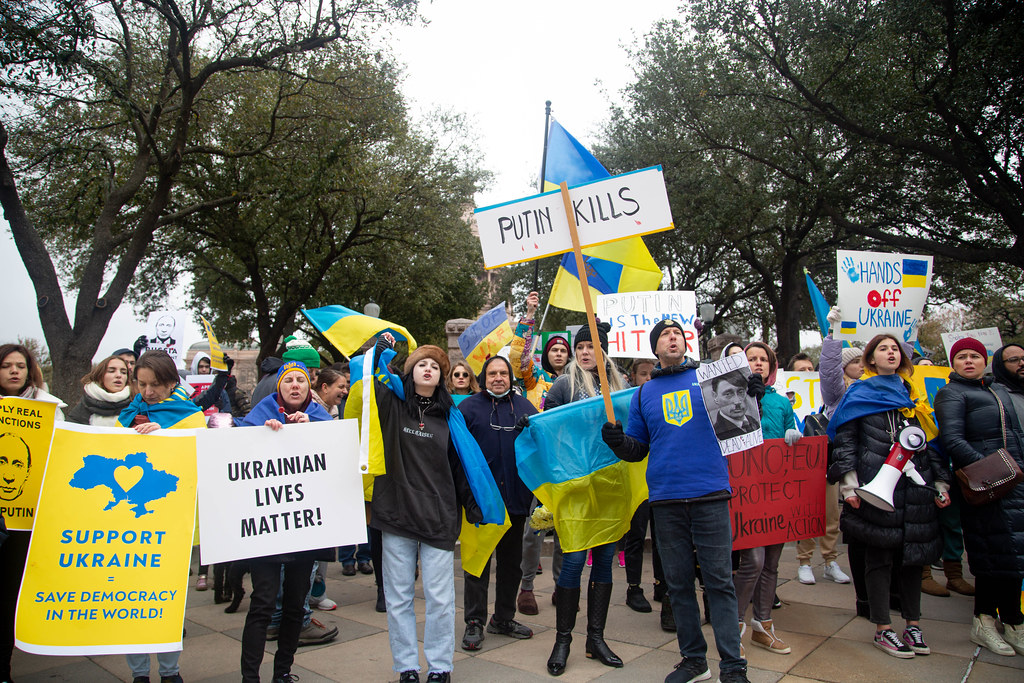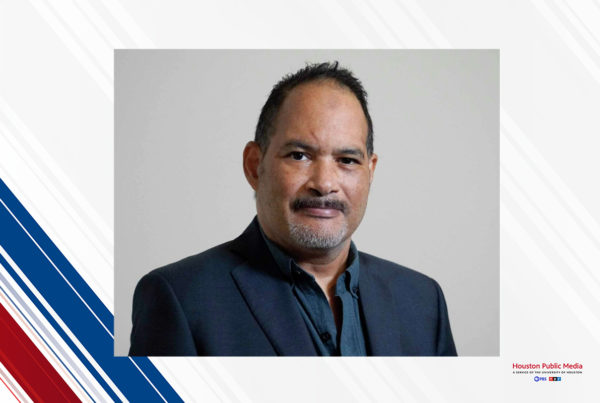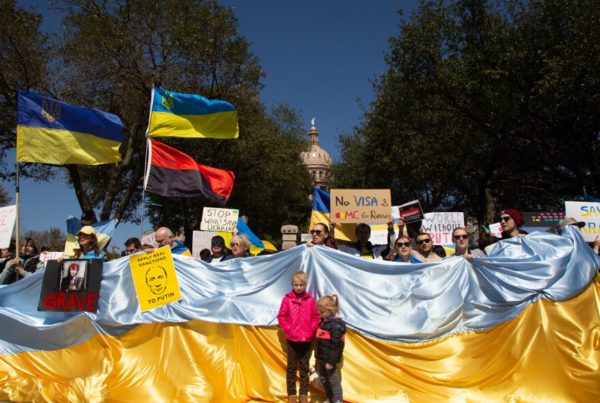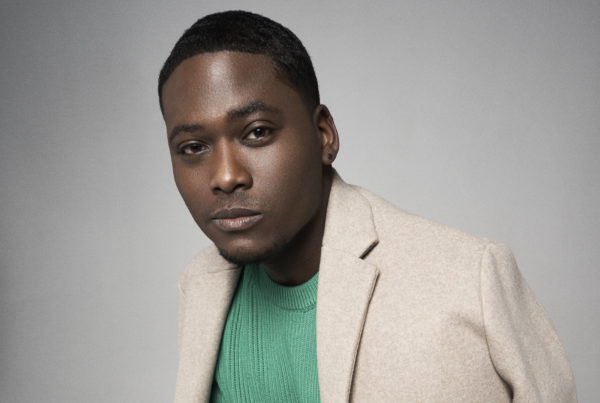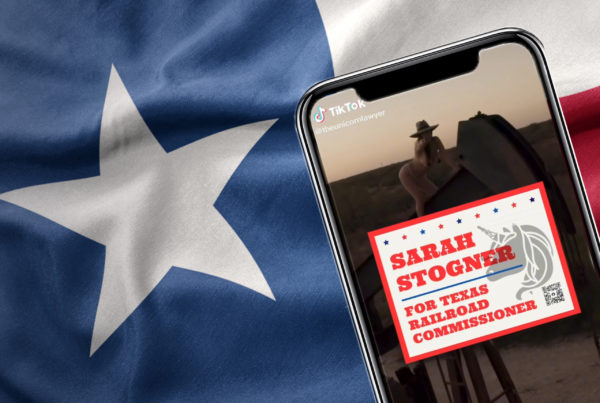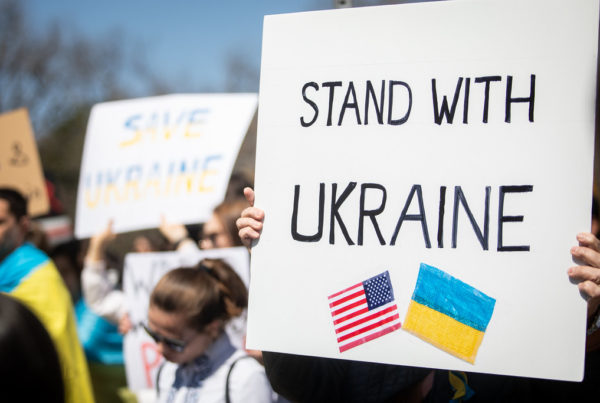Will Hurd supported imposing a ‘humanitarian no-fly zone’ over Ukraine Friday, in a conversation with Texas Standard.
Hurd, an ex-CIA officer and a Republican who represented Texas’ 23rd district in Congress, acknowledged that a no-fly zone could escalate the conflict with Russia, but would save Ukrainian lives. Listen to the interview above or read the transcript below.
This transcript has been edited lightly for clarity:
Texas Standard: How would you assess the role the U.S. has played so far in supporting Ukraine?
Will Hurd: I think that the U.S. has done a lot, but I think we can do a lot more. I would have liked to see some efforts prior to the conflict to see if we could have thwarted the Russians from coming in. It’s very clear that Vladimir Putin has miscalculated: one the strength of his army, and two the resolve of the Ukrainian people. And three, the solidarity between Europe and America and the rest of the world in helping Ukraine.
And we’re seeing every day this kind of escalation. We’re seeing him hitting more civilian targets. And he has more tools in his toolkit to bring this destruction, and there’s going to be a significant loss of life in Ukraine.
Well, let’s talk about the tools in the West’s toolkit. And by the West and referring to the U.S. and NATO, of course. Obviously, sanctions are a big part here, but that’s going to bring concomitant increases in the costs of fuel. We’re going to see the cost of goods and services likely to increase. And as many have been warning, the longer this goes on, the more people in the U.S. to say nothing of other countries, get pinched by sanctions. And market uncertainty pushes up prices, hurting people who can least afford it. How does Ukraine fit into our strategic interests?
Some people can carry heavier burdens than others. And one of the reasons that the United States of America has become an exceptional nation is not because of what we have taken, because of what we have given – this experiment called America and freedom and supporting freedom loving people everywhere. And so that that starts with, if we’re able to prevent a significant loss of life. [That’s] our moral obligation? But too, we have to remember, foreign policy is not foreign, and these activities can potentially impact our shores. We’re seeing it with the disruption of supply chains. We’re seeing that with the disruption of markets.
There’s another issue at play here, too: it’s better to have friends. In our time of need, we want friends to have our backs and the best way to do that is to have our friends back when they need us. And there’s a third element in this conflict that’s happening in Ukraine that hasn’t got a lot of attention because just watching what Vladimir Putin is doing in Ukraine is a lot. The Chinese government is watching it. The Chinese government is watching what’s happening in Ukraine because of their interest in invading Taiwan. They’ve made it very clear that they want to do that. And so I think the global response to Vladimir Putin’s death and destruction is probably making the Chinese government pause.
And why should we care about Taiwan? It’s because the Chinese government could potentially own 70% of the semiconductor manufacturing in the world. Those are the building blocks of every electronic device. It’s not just your car or your smartphone, but it’s your refrigerator. And if you think it’s difficult now getting some of these things, it’s going to be even more significant [if China threatens Taiwan.] And when you can’t get it, the price is going to be exorbitant. Oh, and then by the way, potential opportunity for the Chinese to get all the information that flows from that device. So this is why all of these issues are interconnected.
So in part, this is an effort to, at least on one level, to deter the Chinese from taking more rash steps vis a vis Taiwan. But I’m wondering, if you were still a member of Congress representing Texas, what would you be urging your colleagues to do at this juncture with respect to Ukraine?
I think we need to rethink and challenge some of our underlying ideas on our foreign policy. A lot of people didn’t think Vladimir Putin was going to invade Georgia in 2008, and nobody thought he was going to invade Ukraine back in 2014. A lot of people thought that the Taliban couldn’t take back Afghanistan. And so we have to question some of our some of our opinions.
So one of the things I would be advocating, and it’s and it’s not popular now, because there is concern – how do we prevent the Russians from controlling the skies over Ukraine? How do we give the Ukrainian military the ability to fight? And the concern is valid that if America got involved in shooting down Russian planes, that drags us into World War III.
There are examples of a humanitarian no-fly zone. And I think we should rethink this because at the end of the day, if we’re able to prevent that loss of life, are we doing enough? And let’s challenge some of these assumptions?
Would you then say that we should impose a no-fly zone with our allies, perhaps for humanitarian purposes?
Former Ambassador Kurt Volker and General [Phlip] Breedlove, who used to run NATO forces – they’ve suggested a way to have a humanitarian no-fly zone over Kyiv and to the west, where you don’t get close to the Russian borders, it’s there for humanitarian assistance. I think there’s things like these fighting aerial platforms that we are getting ready to decommission. Can we give those to the Ukrainians? NATO has a number of Mig-29 that they could share with the Ukrainians. There’s a lot of ways that we can prevent the Russians from maintaining a dominance in the skies without potentially getting into a shooting war with Russia.
But if NATO’s or the U.S. or the West more broadly imposes a kind of humanitarian no-fly zone, presumably you’re going to have to enforce that and at what point do you run the risk of having a violation and then a conflict escalates – It serves as a trigger.
But a Russian plane getting shot down by a Ukrainian piloted airplane in order to defend Kyiv. Is that an escalation, because of the United States of America? And yes, if you establish something like this, then you have to enforce it. You don’t just say you’re doing this and you make it clear what the rules of engagement are in this. But these are some of the conversations we should be having because weeks, months down the road, if millions of people were being killed in Ukraine and there was something that we did to stop it. Did we do everything that we could? Did we establish that we think through all the different options of having prevented that significant loss of life. And then we’ve already established that if this happened in Poland or in a NATO country, we would respond with the full force of the United States government. So we’re willing to do that with NATO allies. And is there a format in which to help the Ukrainians in order to fight on the ground?
This war is different from many other in terms of how people are learning about it. There’s unprecedented access to real-time events, thanks to social media. As a former intelligence officer, though, what advice would you give to folks about consuming information about the conflict?
I think getting information from credible sources, getting information from people that are on the ground is important. if you want to know what’s happening inside Russia. Are you listening and following reporters that are actually in Moscow? Are you looking at individuals that have some perspective or experience with these issues and sharing that information. I think the perfect example was the way information was flowing about the nuclear reactor that was on fire when it first happened. The concern and the fear. And then, we didn’t get a clear picture. And so I think it’s it’s a credible sources is even more important when it comes to breaking events like what we’re seeing happening in Ukraine.


